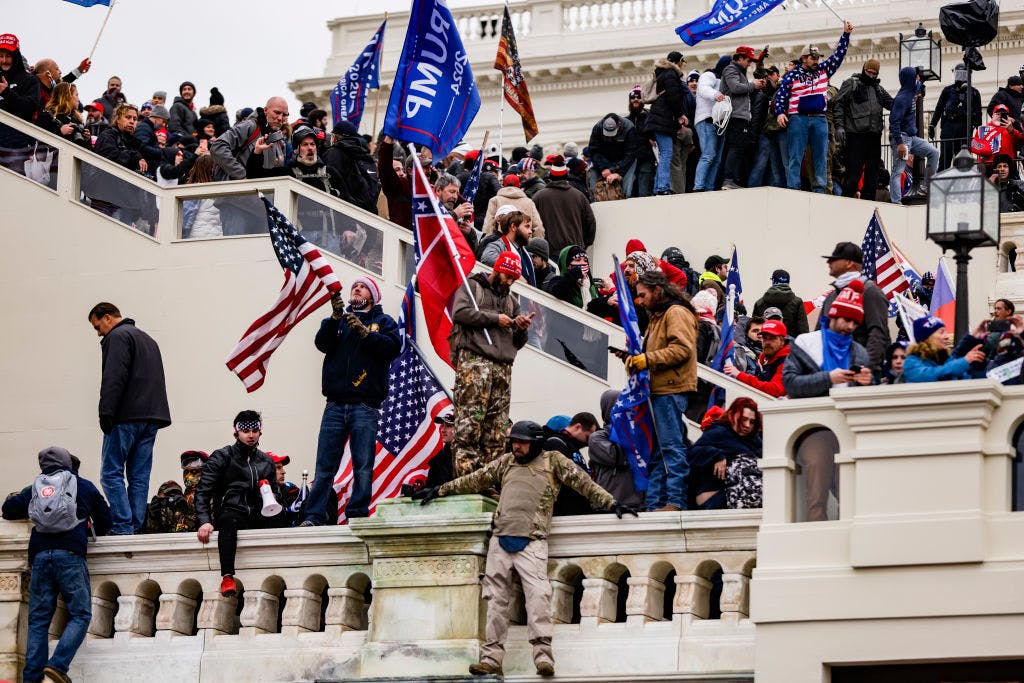Will the Supreme Court — in a Fell Swoop — Scotch Hundreds of Criminal Cases From January 6?
A law intended to reform Wall Street and protect ‘consumers’ is being used to jail rioters protesting the election.

Nice to see the Supreme Court being asked to review the decision of federal prosecutors to charge 300 January 6 rioters — and, potentially, President Trump — with violating the Wall Street Reform and Consumer Protection Act. Is that for what Sarbanes-Oxley was meant? A lower court ruled that using the law against rioters was an error. An appeals panel reversed. Is the high court prepared to scotch hundreds of criminal cases in a fell swoop?
Our advice to the berobed sages is to — as Mrs. Macbeth put it — “screw your courage to the sticking place.” Overturning convictions, or precluding charges, of those who rioted at the Capitol might be greeted with outrage. Permitting an overreach of the law, though, presents its own danger. Due process would appear to require charging nearly a third of the January 6 rioters only under a law intended for such a purpose.
It’s not as if Sarbanes-Oxley is the only law available. Its language against obstructing an official proceeding — the provision of Sarbanes-Oxley at issue — was never meant for rioters of the electoral count. Surely there are other laws. We like the way one of the petitioners of the high court, Jacob Lang, puts it when he allows in his filing that the law is “not silent” on prohibitions against violence and trespassing.
The Supreme Court usually waits to hear a case until there is a circuit split — a conflict between two of the 13 appellate courts. Yet the application of this provision to January 6 has already split the District of Columbia Circuit. The dissenting jurist below, Judge Gregory Katsas, calls the decision “implausibly broad and unconstitutional.” The petition to the Supreme Court labels it “cacophonous.”
Plus, too, many of those charged with the Sarbanes-Oxley statute — whose attraction to prosecutors we reckon has something to do with its 20 year maximum sentence — have yet to stand trial. This is more than two years after the Capitol was stormed. It renders their potential injuries imminent but not inevitable. The court has not hesitated to throw out convictions before, as, say, in a long string of cases of “honest-services fraud,” if a law is found to be overly vague.
Sarbanes-Oxley describes itself as “an act to protect investors by improving the accuracy and reliability of corporate disclosures made pursuant to the securities laws.” A worthy goal, but not the same as outlawing a riot over the counting of electoral votes. Due process is meant to secure not only the rights of defendants, but the integrity of verdicts. By stretching to make the statute fit the crime, prosecutors run the risk of bending justice out of joint.
In April, the Sun issued an editorial wondering whether using against the Oath Keepers a law intended for auditors “opens the door to further litigation — and possible intervention by the Nine.” That door is now opened, the invitation extended, the opportunity presented. We carry no brief for the January 6 rioters. We do carry a brief for due process and the application of our laws as their authors — and the Framers — intended.

